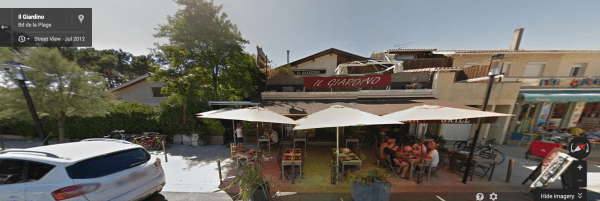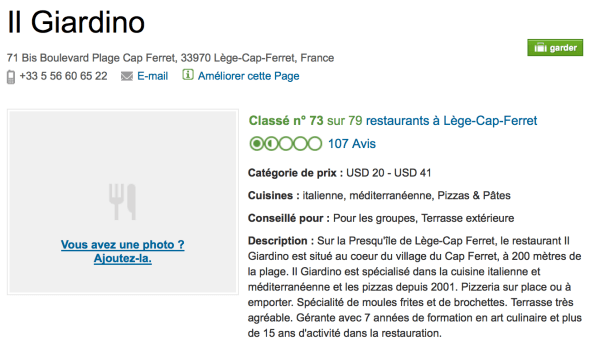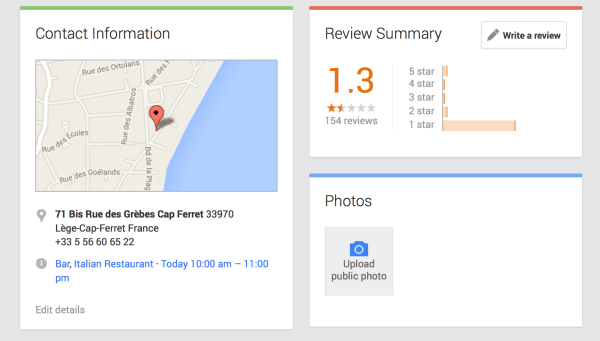Blogger Fined By French Court Because Negative Restaurant Review Was Too Prominent In Google
A French court has ordered a blogger to pay a substantial fine and change the title of a restaurant review because the review was too prominent in search results and harmed business at the restaurant. The post has since been removed but can be viewed here (via TechDirt). The restaurant, Il Giardino, complained to the […]
A French court has ordered a blogger to pay a substantial fine and change the title of a restaurant review because the review was too prominent in search results and harmed business at the restaurant. The post has since been removed but can be viewed here (via TechDirt).
The restaurant, Il Giardino, complained to the court that the critical review had hurt its business. The blogger, Caroline Doudet, had something of a following (3,000) for her blog called “Cultur’elle.” This is what enabled the review to rank. According to the BBC, citing court documents, “the review appeared fourth in the results of a Google search for the restaurant.”
The original title of the review was “The place to avoid in Cap-Ferret: Il Giardino.” The court in Bordeaux ordered the title of the review changed to simply “”the place to avoid” to diminish its prominence in Google results as well as its impact on the restaurant.
As mentioned the review has been deleted. However, using Google Translate I was able to generate a very crude English translation of the archived version of the review. It appears to be a basic critique of the service at the restaurant, with some rhetorical flourishes.
In the U.S., there would be no claim against the blogger because the review would fall squarely within First Amendment protection. What’s interesting is that Doudet’s review/post is very consistent with numerous critical reviews on TripAdvisor and on the restaurant’s Google+ Page (although some people have been slamming the restaurant on Google+ since the decision).
Doudet could appeal the decision but has decided not to because she did “not want to relive weeks of anguish,” according to the BBC.
There are two contexts in which this story can be analyzed: 1) the futility of trying to use the courts to attack or quash negative reviews and 2) European courts’ increasingly bold attempts to blunt the impact of or censor specific search results that are perceived to cause harm (whether or not the information at issue is truthful or factual).
On the first point the restaurant has gained much more unwanted attention for itself through the action and subsequent coverage. I wouldn’t be surprised now if it went out of business. However, the food and service appear to be mediocre; so perhaps it’s inevitable anyway.
On the second matter, I’m sure the BBC coverage fails to elucidate some of the nuances of the case but the judge’s actions and decision appear to me to be pretty outrageous. I could perhaps understand the decision if the review were totally defamatory and not supported by the weight of opinion from other sources. But it seems very consistent with other reviews.
The only “crime” here, then, was ranking too high in search results.
Thanks to Max Minzer for pointing out the story.
Contributing authors are invited to create content for Search Engine Land and are chosen for their expertise and contribution to the search community. Our contributors work under the oversight of the editorial staff and contributions are checked for quality and relevance to our readers. The opinions they express are their own.
Related stories


